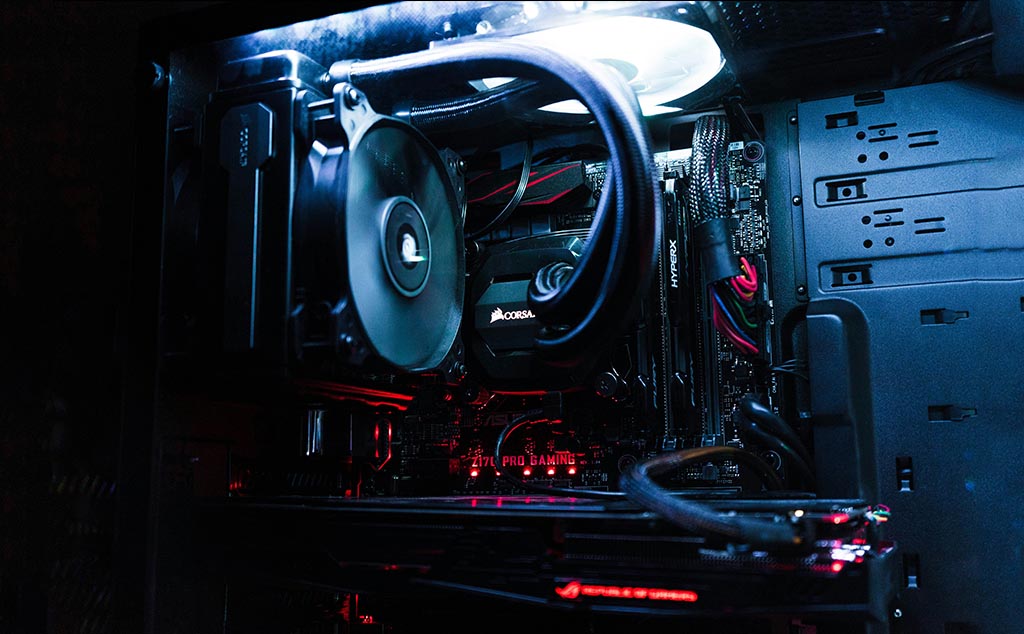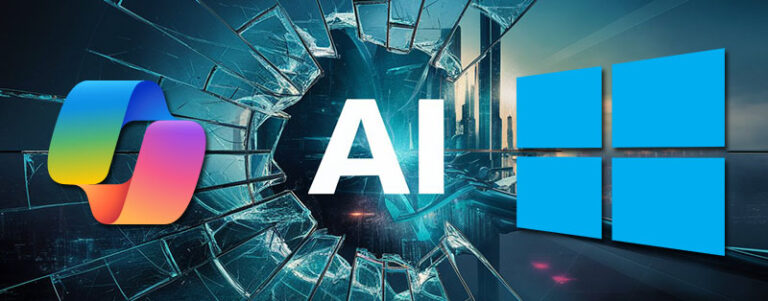Struggling to choose between laptops and desktops? Let’s breaks down the key factors: power for demanding tasks and portability for on-the-go use.
While the latest trend these days gravitate towards people opting to buy a Laptop, do not count the desktop computers out just yet. There are many advantages of purchasing a desktop computer instead of a Laptop…
Laptop or Desktop ? Which is better
Firstly, it is important to take your needs into consideration here, Laptops overall offer better mobility however, desktops on the other hand offer more raw power.
Secondly, overall life expectancy plays a key roll here as well. Desktops computers can be serviced and maintained for years where as laptops are mostly manufactured to last only a few years before you will need a new one.
If you need power and performance than a desktop PC is the way to go. Desktop PC’s are unmatched in performance when taking the equivalent laptop and pitting them against each other.
Pro’s and Con’s of the Laptop
Looking at Laptops here are some of the key factors you need to know about before deciding on purchasing a laptop.

Curacy of: Joshua Woroniecki
1. Cost of Laptops
It is not secret that laptops cost a pretty penny these days, ranging from your entry level Intel Celeron specifications all way up to i9 monsters however what you need to know here is that Laptops are not going to last as long or be as relevant as a desktop overall.
Retailers love to push entry level laptops such as the Intel Celeron or AMD Athlon series but you will soon find that these lack in power and can lead to frustration.
Usually I will advice my clients to at least get an Intel i3 or AMD Ryzen 3 if you are looking for a budget laptop and lean more towards the Intel i5 or AMD Ryzen 5 if at all possible.
Furthermore with one tier up you will pay a little more but you will definitely benefit from having a faster CPU and thus can manage more tasks overall.
I wish Intel would throw the Celeron CPU option out the door, they suck for everything basically.
Anton @ Micro Fusion
We do not recommend you choose any form of Intel Celeron offerings. They really are under performers. If you are on a tight budget consider AMD instead.
2. Overall Laptop Upgradability
Upgrading a computer is essential as to how long it can serve you. Laptops unfortunately are knows to be terrible in this areas were some manufacturers lean heavily on planned obsolescence to make sure you come back in a few years to get another one.
Take Lenovo for example. Most of their Laptop models solder the RAM memory into the motherboard which means you as the end user will be unable to upgrade the RAM memory on these units.
They might offer an additional RAM expansion slot but this too will be limited in the size which you can add to the laptop, a horrible anti-consumer practice.
It is not just Lenovo, brands like HP, Dell and Asus all does this in some models if not most models making upgrading a laptop difficult if not in some cases impossible.
Furthermore, graphics cards and other expansion is limited to impossible for a normal home user to upgrade. Basically when buying a laptop you get what you pay for and after that you are stuck with that configuration so choose wisely.
3. Power and Performance of Laptops
While laptops offer great mobility again they cannot really hold a candle against its desktop counterpart.
In most cases a desktop PC will out perform it’s laptop equivalent due to a laptop being geared more towards power efficiency rather then raw performance.
Laptops overall however are less power hungry due to their need to be a mobile platform that will provide good battery life.
4. Laptop Mobility and Efficiency
This is where Laptops shine. Laptops are great if you are on the go frequently and need something more than just a phone.
Laptops offer a huge advantage for people that are always on the move. You cant easily cart a desktop computer with you to a Starbucks.
Laptops also offer a very small energy footprint and can something be charged up using a small solar station. This is not easily done for a Desktop PC.
Therefore if you have the need to travel or if you need a computer that you can easily take with you a Laptop is the way to go. Just keep in mind that laptops are fragile things.
Laptops can get damaged easily, more so then a stationary desktop PC and repairs to laptops are much more difficult if not impossible depending on parts and EOL (End of Life) of the model.
5. Operating Systems for Laptops
Most of the time, Laptop manufactures will by default install and ship a copy of Microsoft Windows 11. Some give you an option to install something else such as Linux but for the most part your laptop will be designed for Windows.
While it is possible to remove windows and install for instance Linux on your laptop its often difficult and you might run into hardware issues.
Pro’s and Con’s of the Desktop PC
Desktop Computers are extremely versatile and powerful. From gaming machines to servers and AI powered clusters, Laptop computers just cannot fill these rolls.
Both AMD and Intel offer a wide variety to cater for different needs, it all depends on that you want to do. Most of the time for Gaming a good Intel i5 or i7 or AMD Ryzen 5 or 7 should be more than enough for 1080p and even 1440p gaming.
For servers Intel’s Xeon and AMD Threadripper series are monsters geared towards multitasking and core counts.

Curacy of: Artiom Vallat
1. Cost of Desktop Computers
Desktop Computers offer a massive mix and match variety in the market, more so if you plan to build your own. You have freedom to choose exactly what goes into you system. Laptops on the other hard offer some customization but its nothing near the level of a Desktop computer setup.
Fracturing in cost you get more bang for you buck so to speak if compared to a Laptop PC.
Over the years computer components has skyrocketed in price due to inflation, the pandemic causing chip shortages throughout the world and with some manufacturers like NVIDIA inflating pricing of graphics cards as well which does not help however its still more viable to build a desktop PC rather then buying a laptop and here is why
2. Overall Desktop Computer Upgradability Paths
Desktop PC’s and components are available in abundance, should a part in your PC fail you can easily purchase and replace the part. Lots of computer repair centers such as Micro Fusion Computers keep stock for desktops on hand making repair time quick.
Likewise if you have to urge to upgrade your computer its a much more straight forward task than a Laptop which will require manufacture specific OEM parts which might not be available anymore or hard to come by.
Mixing and matching is a common practice when it comes to building a desktop system, You can for instance use a Gigabyte motherboard with a Asus Graphics card and Corsair memory on an AMD Ryzen CPU cooled by a Coolermaster AIO liquid cooler all inside a Lian Li case. The choice is yours…
3. Power and Performance of Desktop Computers
Firstly Desktop Computers can get hungry when it comes to power consumption, these days a high end gaming system can draw close to 1000w or 1kw of power from the wall when going full speed. While you get massive performance you will also feel it on your electricity bill. Laptops are generally more power efficient here
It is crucial to use a good power supply. A Gold or Platinum rated power supply overall is recommended to make your desktop PC much more efficient overall.
Secondly, when it comes to performance desktop computers are just much more capable and powerful, the cooling factor alone exceeds a Laptops cooling capability overall. cooler components means more performance and a longer life span.
4. Desktop Mobility and customization
Sadly, a desktop Computer is big and heavy. Mobility is not a desktop’s strong suite at all. Sure you get people that mod desktop computers in very small form factors and you also get whats called mini PCs however these are all limited and should be views more like a laptop type PC.
Likewise, with desktop computers you do however have many options to customize from looks, design, even lighting nowadays knows as RGB. There is a sense of freedom that comes from building a Desktop PC that laptops just cannot match.
5. Operating Systems for Desktops
Most people are not gonna think about this when purchasing a computer, especially if it is a prebuild system like a laptop however there are other alternative operating systems out there that is not Microsoft Windows.
With a desktop you are free to choose that ever you want. Run Linux, Unix. Windows or why not all of them on the same computer.
Thing is you are free to choose what every system you want to use. On a desktop its easier to install and manage your software from scratch. Laptops when purchased often comes with a bunch of pre-installed software that are bloatware.
This is done by the manufacturer in partnership with companies to ship their software with your PC.
What I usually do is format the Laptop and install my own Operating system to remove all the bloatware. Just note this is not for those why are not comfortable messing with the inner workings of a working system.
Conclusion
Though Laptop computers these days are very capable if you need something for gaming or heavy workloads then it is better to go with a Desktop Computer.
However, if mobility or energy consumption is your thing then you need to look as a laptop instead. Luckily there are loads to choose from.
As for servers those are in essence desktop like computers. Laptops do not make good servers even if its home servers such as NAS servers. Use a desktop instead.
Should you be looking for customization then a desktop PC would be a better option to choose. you have much more freedom when it comes to changing things out and repairing options should something go wrong.



